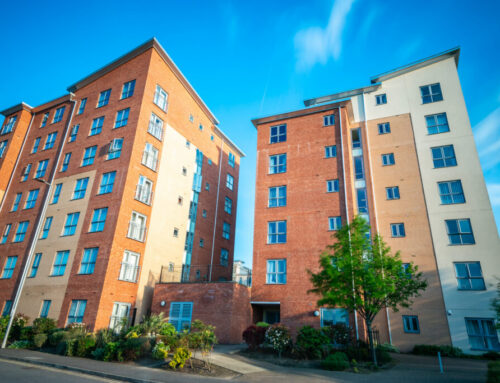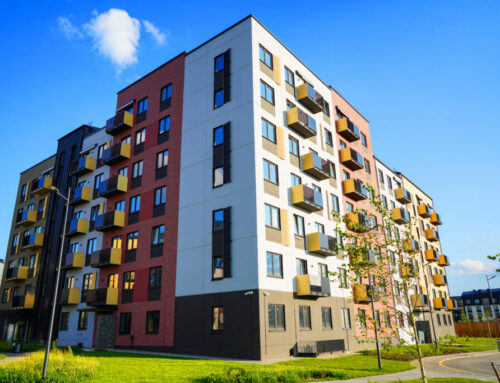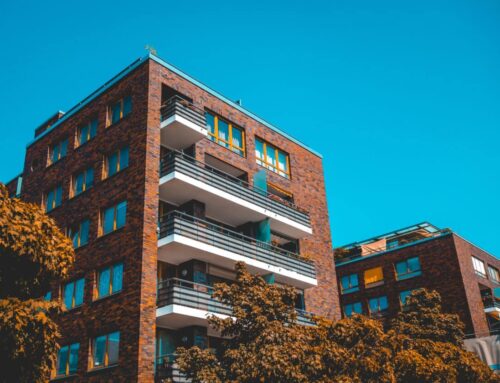Key Things To Think About When Maintaining Your Block
Belinda Thorpe, Managing Director of Residentsline, discusses maintenance and your block.
Maintaining your block of flats is a necessity, and an important one at that. There are very few people who, for example, own and car and refuse to have it serviced. The same applies to a block of flats.
It is crucial that you keep on top of your property’s maintenance needs, as otherwise you may find yourself paying for expensive repair work which could have been prevented.
The main reasons you should keep up with the maintenance of your block:
- Legal obligation: It is the legal duty of the landlord to ensure any necessary maintenance and repair work is up to date.
- Cost-effective: If a block is properly maintained it prevents a great deal of repair work needing to take place.
- Insurance costs: This is another cost-effective example, as without proper maintenance you are far more likely to make claims for damages. In doing so, your insurance premium and excess will be a lot higher than necessary.
- Saleability of flats: Flats in a block without regular maintenance will be more difficult to sell at a desirable price.
- For Statutory compliance: This includes your duty to have regular risk assessments, lift inspections and electrical testing.
- Warranty requirements: Elements of your block may benefit from manufacturer warranties.
- Residents’ comfort: The condition of your block is important in ensuring your residents’ comfort. An avoidable leak not only costs the block money on insurance excess but might also damage contents, not to mention the inconvenience.
- Safety: A block which is not maintained correctly can be dangerous for residents, employees and visitors on the premises – both the internal and external grounds.
Why is maintenance sometimes overlooked?
Oftentimes, maintenance is overlooked due to the need to keep costs down. This is a significant factor in maintenance decisions as it is the lessees who need to cover the cost of maintenance work through their service charge and (for major works) Section 20 procedures.
However, it is the duty of landlord to find the balance between keeping costs down AND maintaining a comfortable, safe block. This means carrying out all essential work, i.e. roof reparations and obligatory risk assessments. Likewise, to overlook essential maintenance work will, inevitably, lead to higher costs further down the line in the form of expensive repairs.
Arguably, there was a time when there was some advantage to keeping maintenance costs down so that service charges would be at an attractively low rate for new buyers. However, this does not apply in the present day thanks to the average buyer being far more well-advised on such matters. In fact, the absence of a realistic budget and planned maintenance regime may now do more harm than good, as it can adversely affect the saleability of each flat.
What sort of maintenance do you need to think about for your block?
Maintenance can include everything from day-to-day cleaning right through to periodically repairing and painting the external elevations, replacing roofs, communal heating systems and more.
It is advisable that there should be a fixed schedule for the maintenance tasks within your block so that it is easier for you to keep on top of.
Specialist services
A good place to start is having a professional surveyor provide you with a Planned Maintenance Report, but this is just the first step.
A Building Services Consultant will be able to predict the most likely cost of replacing specialist services such as lift or heating systems within your block, although this won’t cover the routine maintenance requirements.
If you don’t use a consultant, you may still want to think about asking a competent firm to review any equipment in your block. They will provide a report which covers the standard of maintenance and will offer a schedule of requirements which will help you with your maintenance plan.
Often, landlords have contracts in place with service contractors, i.e. lift engineers, which will detail a schedule of inspections and maintenance tasks at the necessary intervals.
You should always make sure that this schedule is correct and that maintenance standards are being upheld. Remember, you have a legal to duty to have this maintenance carried out.
Health and Safety
When preparing your health and safety review, look at the documentation history of your block. There ought to be a health and safety file available which details the maintenance requirements of the block – this will help both you and the surveyor when creating a maintenance plan.
You should also ensure that those carrying out day-to-day maintenance are aware of the information within this health and safety file so that they have an idea of the standard to uphold.
In blocks which pre-date the CDM Regulations, there is often documentation detailing any major works which have taken place during the scope of the regulations. Ensure these are shown to the surveyor, as this will help when creating your maintenance plan.
Often, health and safety manuals may be incomplete or even absent from your block’s records. It is important that you locate these if possible as they are an important part of your block’s maintenance history and will therefore need to be seen by the surveyor. Likewise, any contractor working on the building should have access to them in accordance with safety legislation.
If the files can’t be found or are missing sections, it is important to acquire a replacement set of information.
It is also important that your surveyor has access to other documents that pertain to the history of your block, such as reports for lift inspections, fixed wiring assessments and water testing. These will be important in determining the future maintenance plan for your block.
Residentsline offers a property portal for Residents’ Management Companies called Manage Your Block www.manageyourblock.co.uk – where you can hold and retain all health & safety documentation online, to avoid anything being mislaid.




Leave A Comment